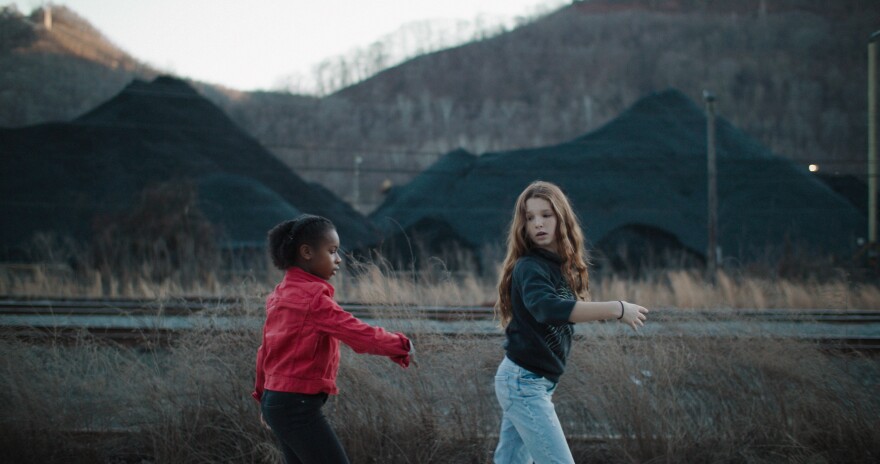New documentary explores Appalachia’s loss of the coal industry
It’s been called a ghost story, and it’s about the death of Coal as the dominant industry in Appalachia. Filmmaker and director Elaine McMillion Sheldon’s latest film called King Coal debuted at the Sundance Film Festival this year and has been screening in select theaters throughout the country, including at Pittsburgh’s Lindsay Theater, September 10th and 14th.
Glynis Board met up with Sheldon at a sold out screening at the Harris Theater in downtown Pittsburgh. Here’s some of their conversation:
Board: Online, your film is described as “a lyrical tapestry of place and people, King Cole meditates on the complex history and future of the coal industry, the communities that are shaped and the myths it has created.” So tell me, does this film have an agenda?
McMillion Sheldon: An agenda to bring dignity? I think that’s kind of I’m kind of always on a path to complicate things a little bit. I’m not interested in oversimplifying whatever solutions we have about our Beyond Coal future. I think it’s going to be a very complex journey that we’re going to be on. And so I didn’t want this film to be the film that’s providing the solutions, but instead is actually providing the step that comes before the solutions, which is the conversation and the mourning, the grieving of the past.
And I don’t know that we’ve really taken the proper time to do that, because it’s not until we say goodbye to the old story that we can work on the new one and and says if there is an agenda, it’s to remind people of our shared resilience and humanity and the fact that, yes, we have this natural resource that has gone all over the world and changed lives, but we also have a lot of other resources, including humans, in our imaginations and what we want for our lives here that maybe are going untapped that we need to remember. So my agenda is imagination.
You’ve talked about grieving and how important grieving is. You said grief is necessary for positive change. Can you speak a little bit more on that?
I think this film was me grieving in some ways — grieving with my own family, with my community. Allowing a space to accept change and change is inevitable, but we resist it. And our resistance to it denies our ability to process it. And I think grieving is seen as something that is also often associated with negative feelings. But there’s a real release in the grief and saying and looking back on the generations, “Thank you for what you’ve done. Now it’s time for us, whatever that is.”
And there’s a liberation in the grieving that I think this next generation really needs to do in a respectful way, because that’s really the tension I think that people feel left behind and unseen in a transition movement without being recognized for sacrificing their own health or the environment, all these things that have been given up
My papa is in the film. He’s a grave digger in real life. So he mined coal for his life, and now he digs graves and has buried everyone from his mom to his wives and everyone in my family. And so I’ve grown up around grieving and mourning as a service, a community service like this. That’s how he plays a role in his community. It’s how he’s helpful to people. And so I think turning it a little bit — not seeing grieving as the end, but as the beginning — is the point of the film.

You’re from one of the pockets of the world, in the country, in the region that produces metallurgical coal, which is used to make steel. And here we are in Pittsburgh. It’s fueled this whole region. And you did take some time to film here in southwestern Pennsylvania and in Pittsburgh. Can you tell us what brought you here and about that?
When we started filming, the first things we found were coal-related cultural scenes. So my co-producer, Molly Born, and I were going around schools, filming presentations that people were doing about coal, Coeducation Faires, the Miss Bituminous Coal Queen Pageant, which is in Carmichaels PA. And then at a certain point, the film started morphing away from just being observations to where we cast two local dancers from West Virginia. They would be the vehicle in which we would learn coal history…
Read More: New documentary explores Appalachia’s loss of the coal industry

